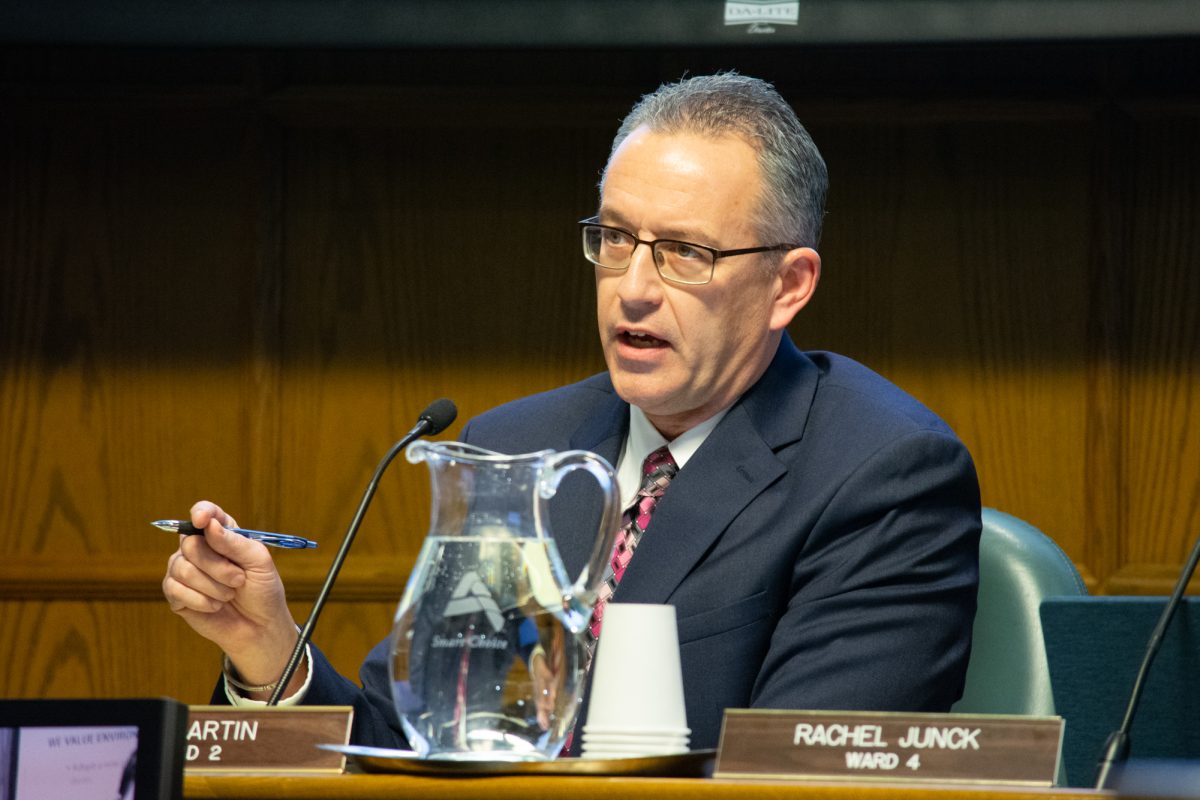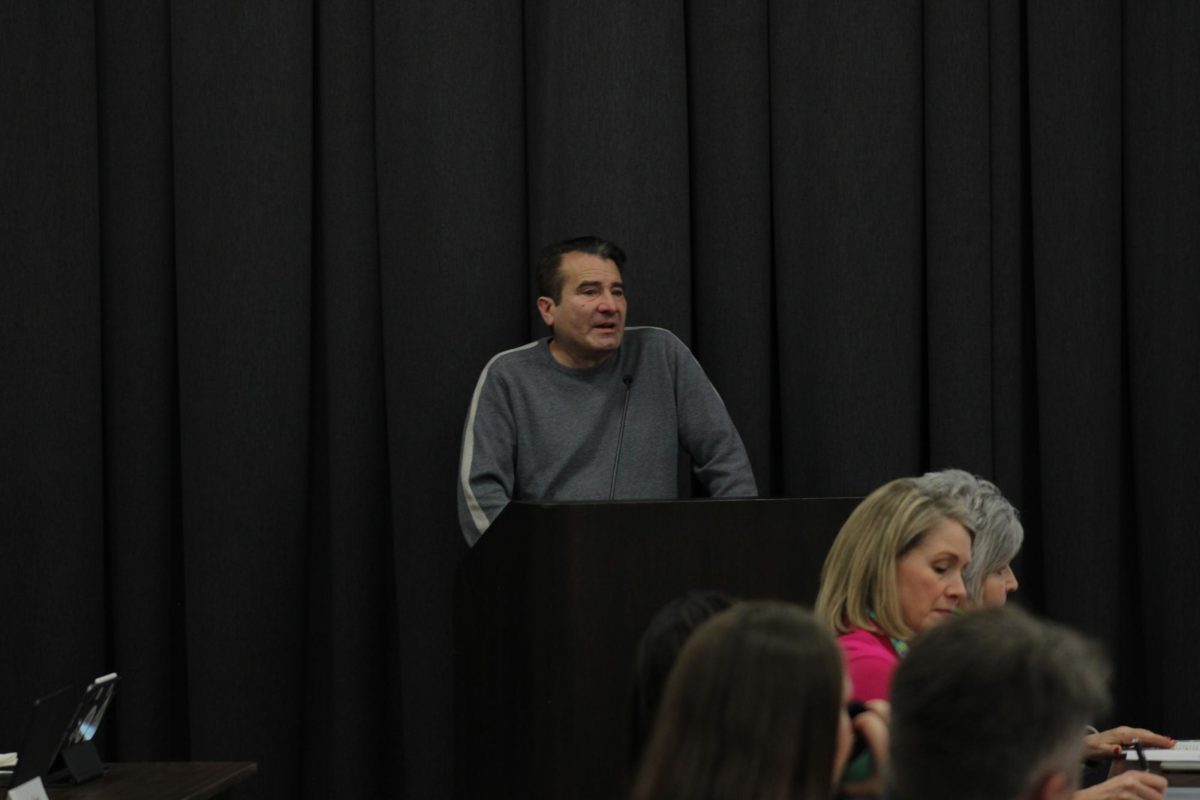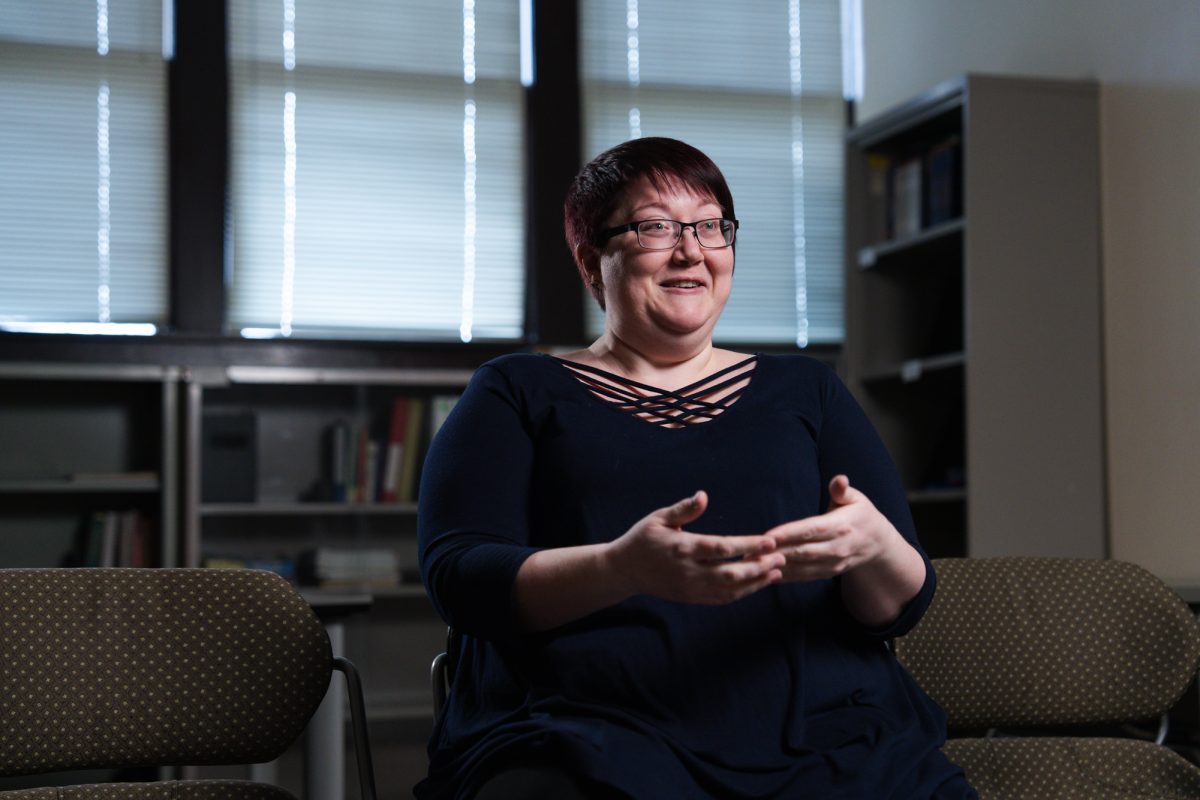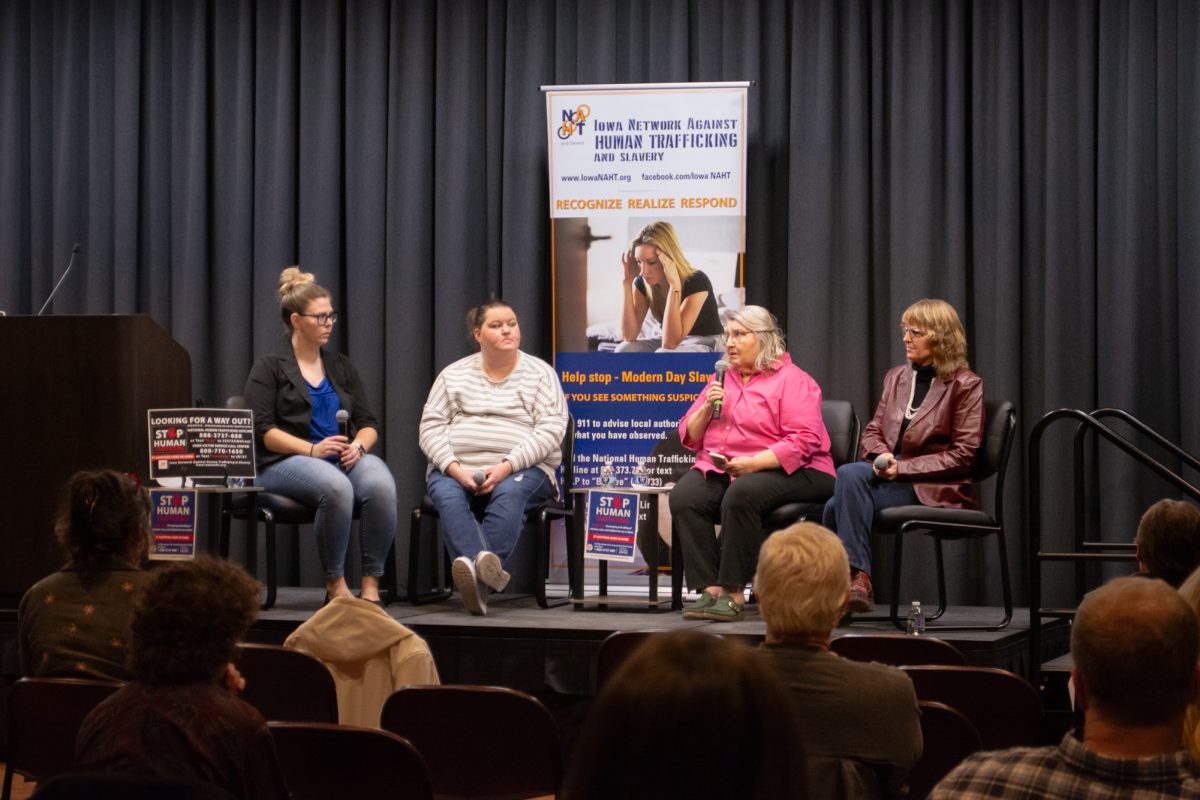Learning communities help students, faculty work out problems
January 13, 2000
Students aren’t the only ones benefiting from participation in learning communities — ISU faculty and staff to be finding the communities are an effective tool to help broaden students’ academic interests.
Tom Polito, assistant professor of agronomy, said there are many types of learning communities throughout Iowa State.
“They are not limited to the College of Agriculture. Learning communities are college- or program-based and are available throughout the university,” he said. “The engineering college has had a strong program, as well as business. The College of Liberal Arts and Sciences has a strong biology learning community.”
David Roberts, professor of English, defined learning communities as the linking of courses with general fields and the development of a core group of students by having them live together and participate in similar functions.
Roberts, who teaches English 309, a report and proposal writing class, teamed with Polito, as well as John Schafer, professor of agronomy.
They’ve linked the English class with Agronomy 356 to better prepare the agronomy students for their client-based, semester-long project.
“The College of Agriculture has developed leading-edge policies concerning communication-intensive courses and attempted to figure out a way to combine them with English 309. They linked the courses and ended up with a full integration,” Roberts said.
Although those two courses are intended for juniors and seniors, freshmen and sophomores can also benefit from learning communities.
Schafer had problems with his students’ writing in his freshman Agronomy 154 class and decided to link it with English 105 for two major projects.
“There has always been a problem in the communication component of the [Agronomy 154] course. [The students] could make good decisions but had problems conveying the decision to a client,” Schafer said.
The combination of English 105 and Agronomy 154 is in its pilot stage this semester. Eventually, Schafer hopes establish a standing connection between the two courses.
Steve Mickelson, associate professor of agricultural and biosystems engineering, said he has noticed a dramatic change in retention of students over the past three semesters the program has been implemented.
“We have had dramatic results, doubling retention rates for students from 45 percent to 90 percent since fall 1998,” Mickelson said.
Mickelson said although retention of underclassmen is one of the goals for the English 105-Agronomy 154 learning community, juniors and seniors also have the opportunity to participate in the program.
“We use juniors and seniors for the mentoring program so upperclassmen who have already been through much of the academic program can participate,” he said.
Although the programs are often successful, they’re not always problem-free, Roberts said.
“Because students blurred the distinctions between [Agronomy 356 and English 309], they felt that they were being worked to death,” he said. “Sure, they worked hard, but they did not do any more writing than if they were to take 309 separately.”
Other problems included what Roberts called classroom management glitches, such as establishing when assignments are due.
But regardless of the problems, Roberts said he has enjoyed designing and implementing a learning community.
“It has been one of the greatest things that has happened during my entire career,” he said.






